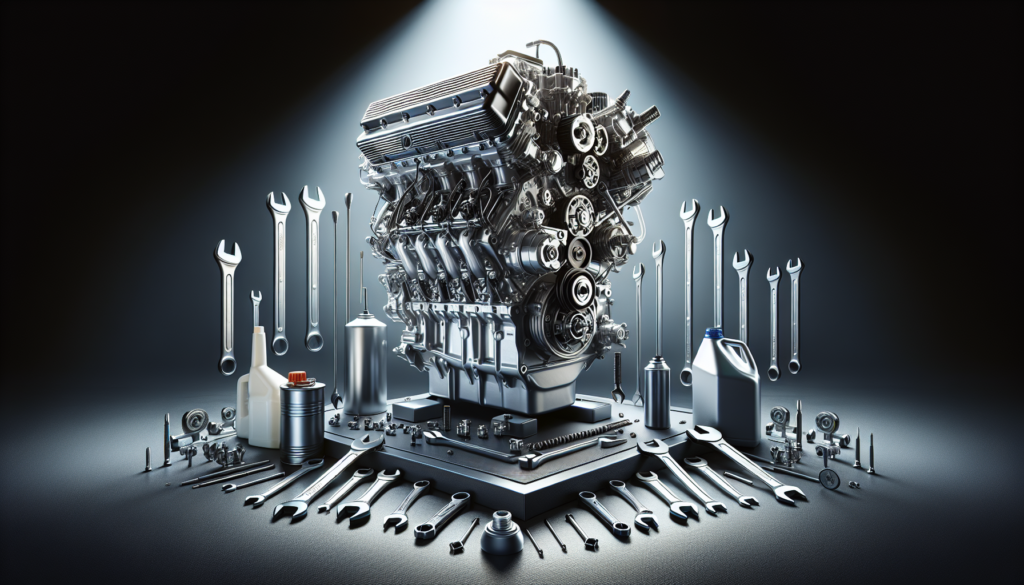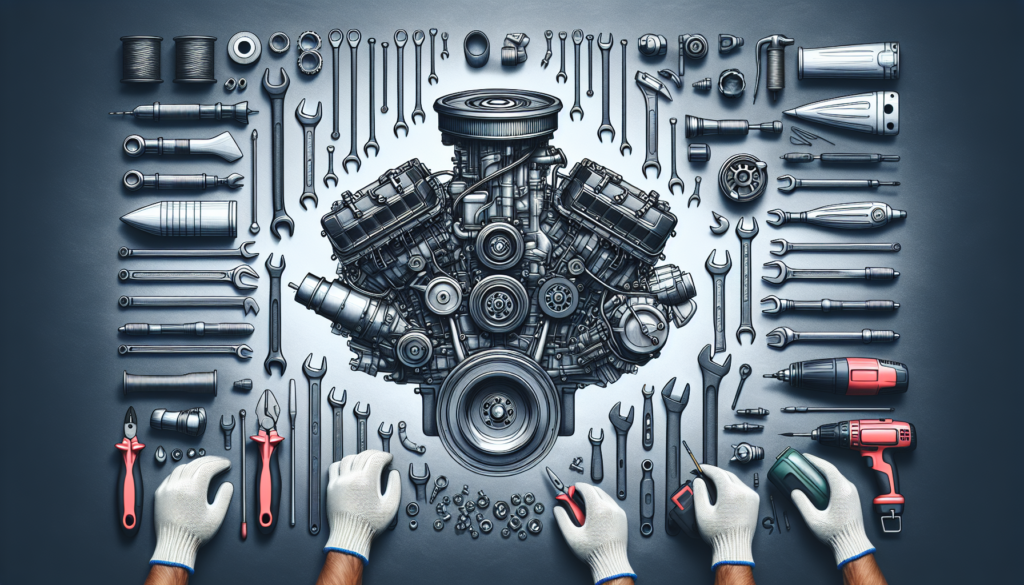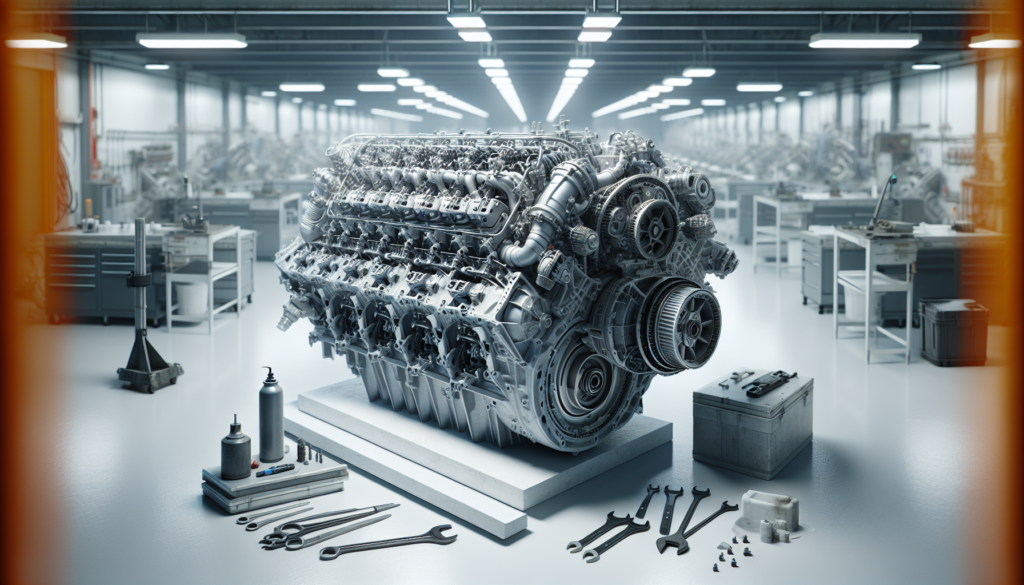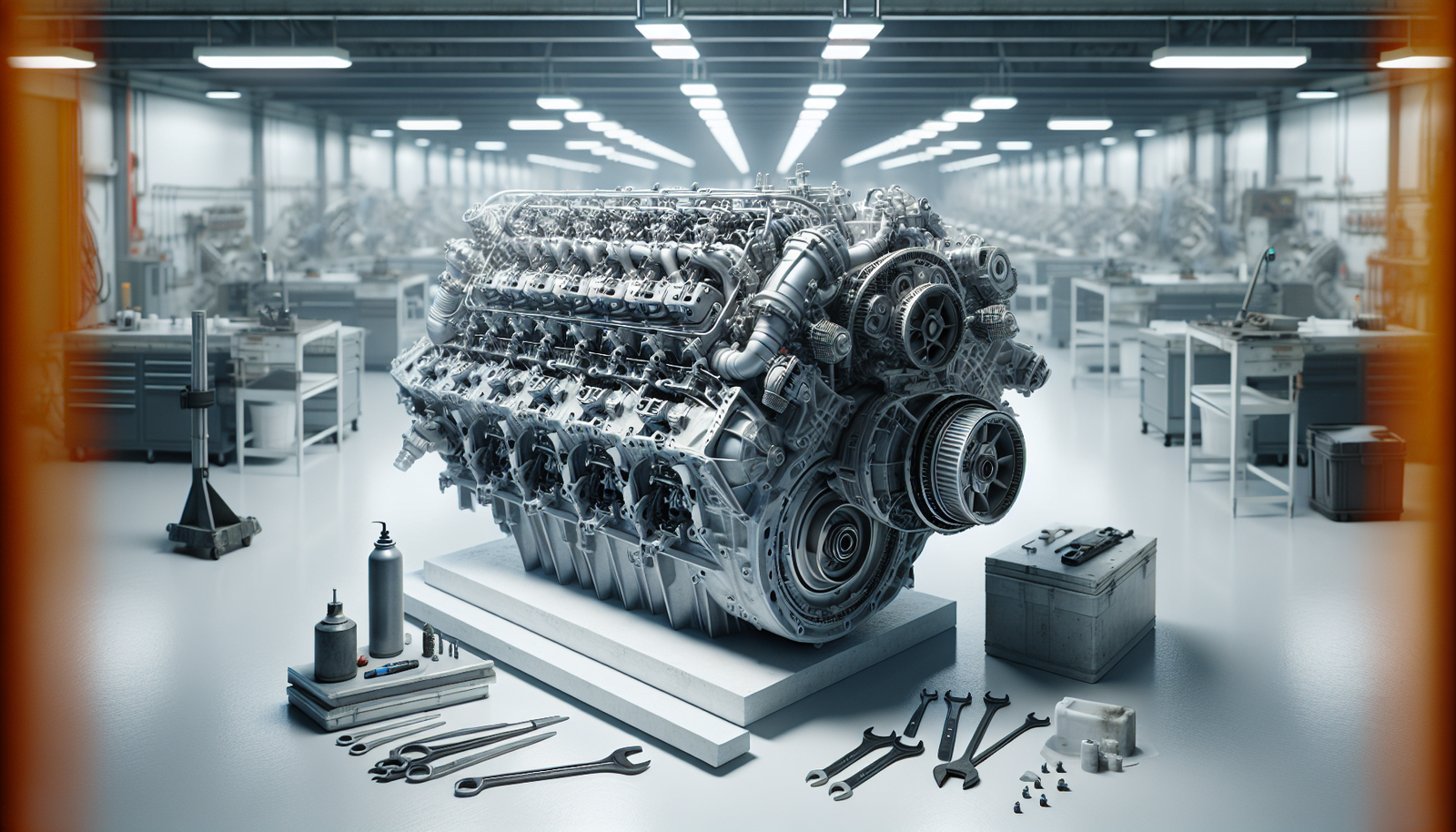“You’ve heard all kinds of advice and tips about boat engine maintenance, but how much of it is actually true? In the article “Most Common Boat Engine Maintenance Myths Debunked”, you will gain the much-needed clarity for keeping your vessel in tip-top shape. You agree that it’s about time to steer away from unfounded myths and sail into the waters of well-founded facts, right? Well then, prepare to navigate your way through a sea of misconceptions.”

Myth One: Seasonal Maintenance is Adequate
There’s a common misconception out there that taking care of your boat’s engine is a seasonal chore. This couldn’t be further from the truth.
The Importance of Regular Maintenance
While it’s true that your boat engine’s needs might change with the weather, it’s important to understand that regular maintenance is a year-round commitment. Much like with a car, your boat engine needs to be given consistent attention, even when it’s not in use. It’s much easier to keep a boat engine running smoothly with regular maintenance than it is to fix a broken one – and it’s usually a lot cheaper too!
Risks Associated with Infrequent Care
Infrequent care is simply a risky move. Leaving your engine without check-ups for extended periods can give minor issues the time to grow into major problems. These can go unnoticed until it’s too late, leading to costly repairs or irreversible damages.
Reasons Maintenance Should be More than Just Seasonal
A strong seasonal maintenance routine could give you the false sense of security that you’ve covered all your bases. It’s important to understand that many boat engine issues don’t stick to the calendar. Regular maintenance helps keep the engine clean, saves on fuel, ensures safety, and increases the lifespan of your boat.
Myth Two: Boat Engines are Self-Draining
If you’ve heard the claim that boat engines self-drain, you’ve been misinformed.
Understanding the Concept of Self-Draining Engines
In theory, self-draining engines drain out any standing water to prevent freezing or corrosion. However, in reality, boat engines are not designed to self-drain.
Why Boat Engines Don’t Self-Drain
The intricacies and peculiarities of boat engines render them incapable of self-draining. Certain components, like the cooling passages, can retain water. This might lead to serious damage if the water freezes or if corrosion sets in.
Preventing Water Damage and Freezing Problems
The best way to prevent damage caused by water retention is regular maintenance checks and proper winterizing techniques. Ensuring your boat engine is stored properly during off-season periods can prevent water damage and any freezing issues.
Myth Three: Freshwater Usage Equals No Maintenance
Freshwater might be less harsh on your boat engine than saltwater, but it doesn’t give the engine a free pass from maintenance.
Damage Freshwater Can Still Cause
Although freshwater is less corrosive than saltwater, it can still cause serious damage to your boat engine. The risk of biological contamination or the build-up of debris or sediments that can block cooling passages remains a threat.
The Necessity of Engine Maintenance Regardless of Water Type
Whether you sail in freshwater, saltwater, or a mix of both, a steadfast rule remains – your engine needs regular maintenance. Regular freshwater flushes, oil changes, and general engine check-ups are vital to your boat’s longevity.
Implications of Ignoring Maintenance in Freshwater Use
Ignorance is definitely not bliss when it comes to boat engine maintenance! Ignoring maintenance just because your boat sails in freshwater can lead to unnecessary failures, expensive repairs, and reduced engine lifespan.
Myth Four: DIY Maintenance is Sufficient
Do-it-yourself (DIY) can be a great choice for minor tweaks and alterations, but it should never substitute professional boat engine maintenance.
Importance of Professional Maintenance Checks
Professionals have the experience and knowledge to spot and solve problems early. They can carry out thorough checks that could be missed in a DIY checkup.
Pitfalls of DIY Maintenance
The DIY approach opens up a world of potential mistakes. You might miss some less obvious but important signs of wear and tear, inadvertently causing more damage and potentially voiding your warranty.
Value of Professional Technical Expertise
The technical expertise that professionals bring to boat engine maintenance is invaluable. Their knowledge of engine architecture and hands-on experience mean they can handle any issues or routine maintenance tasks efficiently.

Myth Five: The Boat Doesn’t Need Maintenance if Not in Use
A boat engine, much like any machinery, doesn’t fare well with complete negligence, even when idle.
Impact of Idle Time on Boat Engines
Contrary to belief, idle time can be damaging for boat engines. Oil can dry up, valves can stick, gaskets can fail, and much more. An idle boat is not a maintenance-free boat.
Proper Storage and Maintenance During Downtime
Even when not in use, it’s important to store your boat properly and schedule regular maintenance.
Neglect and Its Effects During Idle Periods
Neglecting your boat engine during its downtime can lead to a higher risk of failures when you start it up again, potentially meaning more time out of the water and heavier repair costs.
Myth Six: Oil Changes Aren’t Necessary Annually
The belief that boat engines don’t need yearly oil changes is a damaging myth.
Importance of Regular Boat Engine Oil Changes
Oil changes are crucial to maintaining the longevity and effectiveness of your boat’s engine. Old oil can become less effective at lubricating the engine, leading to wear and tear.
Effects of Old Oil on Boat Engine Performance
Old oil can contain contaminants and lose its efficiency. As a result, the engine might run poorly, or not run at all!
Recommended Frequency for Oil Changes
It’s recommended you change your boat engine oil annually, or every 100 hours of operation, whichever comes first. Regular oil changes promote a healthy engine and a smooth sailing experience.

Myth Seven: Any Type of Oil Works
Boat engines are precision machines that require specialist oils to function. This is why the myth that any type of oil will work is just that – a myth.
Specific Oil Requirements for Boat Engines
Specific oil types, like marine-grade oils, are designed for boat engines and their unique operating conditions. These enhance the performance and durability of the engine.
Damage Caused by Using Incorrect Oil
Using the wrong oil can lead to increased friction, overheating, and even engine failure. Incorrect oil can also void your boat’s warranty.
How to Identify the Right Oil for Your Boat Engine
Always refer to your boat’s manual for oil recommendations. If in doubt, consult a marine engine professional.
Myth Eight: Maintenance Isn’t Important for New Engines
The belief that new boat engines are exempt from regular maintenance is false.
Why New Engines are Not Immune to Damage
New engines, just like old ones, can experience leaks, part malfunctions, and manufacturing defects. Regular check-ups will promptly address these issues.
Importance of Breaking in New Engines Correctly
A new engine needs proper breaking in. Following the correct break-in procedure and carrying out regular check-ups can significantly extend the lifespan of your new engine.
Early Maintenance Protocols for New Engines
Initiating maintenance protocols early on can save countless hours and dollars down the road. It can also keep your engine running efficiently early on and well into the future.

Myth Nine: Alarm Bells are the Only Indication of Trouble
While alarm bells and warning systems are useful, they shouldn’t be relied upon as the only indication of trouble.
Limitations of Relying Solely on Alarm Systems
Alarm systems can fail, and more often than not, they only signify a problem when the damage has escalated beyond a simple fix.
Undetectable Engine Issues That Require Regular Checks
Some boat engine issues may be silent but deadly – meaning they could go undetected unless regular checks are performed. Examples include slow oil leaks or small pressure changes.
Interpretation of Different Alarm Signals
Understanding different alarm signals and their urgency is crucial. However, note that by the time an alarm goes off, a minor issue might have escalated into a significant problem.
Myth Ten: Propeller Maintenance isn’t Essential
Overlooking propeller maintenance is a sure-fire way to invite trouble.
Risk of Ignoring Propeller Maintenance
A neglected propeller can cause poor boat performance and engine damage. Chips and dings might seem minor, but they can lead to vibrations that may damage the shaft and even the engine.
Benefits of Maintaining Boat Propellers
Regular propeller maintenance ensures optimal boat performance and improved fuel efficiency. It also helps prevent breaking down in the middle of a journey!
Steps for Effective Propeller Checks and Repair
Check for visible signs of damage, ensure the propeller is secure, and eliminate any marine growth or fishing line wrapped around the propeller shaft. Also, enlist professional help for a periodic, thorough check-up.

